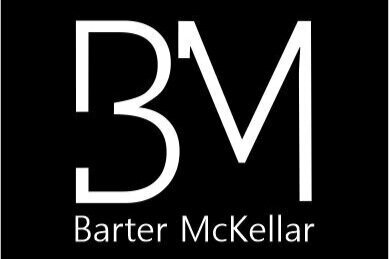Best Collaborative Law Lawyers in Randburg
Share your needs with us, get contacted by law firms.
Free. Takes 2 min.
Free Guide to Hiring a Family Lawyer
List of the best lawyers in Randburg, South Africa
About Collaborative Law in Randburg, South Africa
Collaborative Law is a legal approach in Randburg, South Africa, where parties work together to find mutually acceptable solutions to their legal issues without going to court. It encourages open communication, cooperation, and transparency to reach a resolution that benefits all parties involved.
Why You May Need a Lawyer
You may need a lawyer in Collaborative Law in Randburg, South Africa if you are facing a family dispute, divorce, or any other legal issue where collaborative negotiation could be beneficial. A lawyer can provide legal guidance, protect your rights, and ensure the process is conducted fairly and equitably.
Local Laws Overview
In Randburg, South Africa, Collaborative Law is governed by the Collaborative Law Practitioners Association of South Africa (CLASA). The CLASA sets the guidelines and standards for practicing Collaborative Law in the region, ensuring that professionals adhere to ethical practices and maintain confidentiality throughout the process.
Frequently Asked Questions
What is Collaborative Law?
Collaborative Law is a legal process where parties work together with their lawyers to resolve disputes outside of court.
How is Collaborative Law different from traditional litigation?
Collaborative Law focuses on cooperation and negotiation, while litigation involves going to court to resolve disputes.
What are the benefits of Collaborative Law?
Collaborative Law can be less costly, time-consuming, and adversarial compared to traditional litigation. It also allows parties to have more control over the outcome.
Do both parties need to agree to use Collaborative Law?
Yes, both parties must agree to use Collaborative Law for it to be effective. It is a voluntary process.
How long does the Collaborative Law process typically take?
The length of the Collaborative Law process varies depending on the complexity of the issues involved. It can take a few months to a year to reach a resolution.
Can I still go to court if the Collaborative Law process fails?
If the Collaborative Law process fails to reach a resolution, both parties will need to hire new lawyers if they choose to pursue litigation in court.
Is everything discussed in Collaborative Law confidential?
Yes, communication in the Collaborative Law process is confidential, except for certain legal obligations such as child abuse or threats of harm.
What happens if one party is not being cooperative in the Collaborative Law process?
If one party is not cooperating, the process may be terminated, and the parties may need to seek alternative methods to resolve their dispute, such as litigation.
Do I need a lawyer for Collaborative Law?
It is highly recommended to have a lawyer represent you in the Collaborative Law process to ensure your rights are protected and to provide legal guidance.
How can I find a Collaborative Law practitioner in Randburg, South Africa?
You can search for Collaborative Law practitioners through the Collaborative Law Practitioners Association of South Africa (CLASA) or ask for recommendations from friends, family, or other legal professionals.
Additional Resources
For more information on Collaborative Law in Randburg, South Africa, you can visit the Collaborative Law Practitioners Association of South Africa (CLASA) website or consult with local legal professionals who specialize in Collaborative Law.
Next Steps
If you are in need of legal assistance in Collaborative Law in Randburg, South Africa, consider reaching out to a qualified Collaborative Law practitioner to discuss your options and start the process of resolving your legal issues collaboratively.
Lawzana helps you find the best lawyers and law firms in Randburg through a curated and pre-screened list of qualified legal professionals. Our platform offers rankings and detailed profiles of attorneys and law firms, allowing you to compare based on practice areas, including Collaborative Law, experience, and client feedback.
Each profile includes a description of the firm's areas of practice, client reviews, team members and partners, year of establishment, spoken languages, office locations, contact information, social media presence, and any published articles or resources. Most firms on our platform speak English and are experienced in both local and international legal matters.
Get a quote from top-rated law firms in Randburg, South Africa — quickly, securely, and without unnecessary hassle.
Disclaimer:
The information provided on this page is for general informational purposes only and does not constitute legal advice. While we strive to ensure the accuracy and relevance of the content, legal information may change over time, and interpretations of the law can vary. You should always consult with a qualified legal professional for advice specific to your situation.
We disclaim all liability for actions taken or not taken based on the content of this page. If you believe any information is incorrect or outdated, please contact us, and we will review and update it where appropriate.











